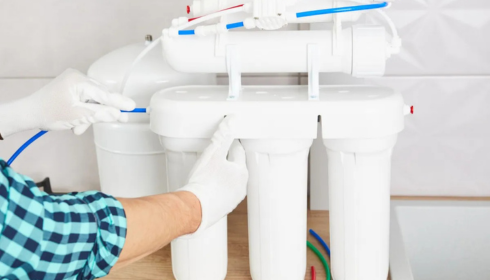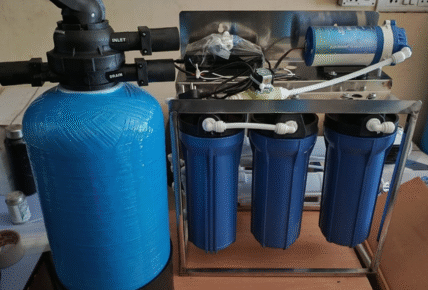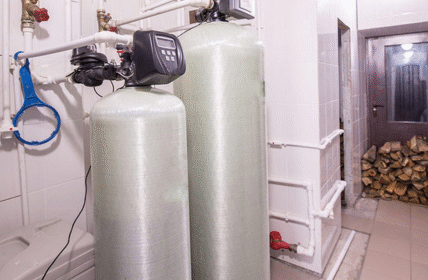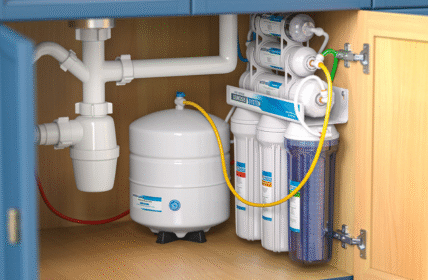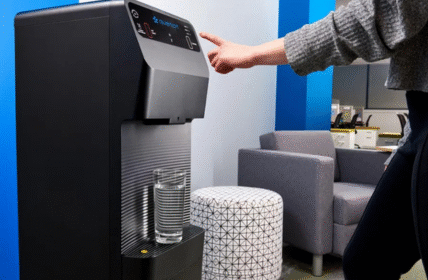Water feels like such a basic thing. You turn the tap, fill a glass, and don’t give it much thought—until the day you notice an odd taste, or you read a local report about contaminants you can’t even pronounce. Suddenly, water doesn’t feel simple anymore. It feels like something you need to take control of, not just assume it’s “fine.” That’s where better filtration steps in, not as a luxury, but as a quiet safeguard for everyday living.
I’ve met homeowners who only realized the importance of a whole-home system after dealing with stained laundry, itchy skin, or that nagging chlorine taste that never seemed to go away. Others learned about things like PFAS or lead only after their neighbors started complaining. And then there are people who simply want the peace of mind that the water their kids are drinking is as clean as they can make it. No matter the reason, it’s a topic worth real conversation.
Why Long Island Homes Feel the Impact
If you live on Long Island, water quality is a subject you hear about more than most. The region’s aquifers are under stress, and groundwater contamination has been a headline for years. Residents talk about nitrates, old industrial sites, or the simple overuse of wells. It’s not paranoia—it’s just paying attention. For families in Suffolk or Nassau, investing in a whole house water filter long island isn’t just about comfort. It’s about trust. Trust that the water coming out of the showerhead won’t irritate your skin. Trust that the kitchen faucet isn’t serving up something invisible but harmful.
And here’s the thing: once you experience filtered water at every tap, you notice the difference right away. Coffee tastes sharper, fruit rinses cleaner, and that weird film you sometimes feel after a shower? Gone. It makes daily routines easier, and it takes the worry out of the little stuff.
Installation Isn’t Just Plug and Play
A lot of people imagine filtration as something you screw onto the kitchen faucet, and to be fair, those devices do exist. But for whole-home protection, it’s a different ballgame. You’re looking at systems that connect directly to your main line, so every drop passing through the house gets filtered before it reaches you. That’s where professional help becomes non-negotiable.
A proper home water filtration system installation isn’t just about connecting pipes. It’s about evaluating your water quality, sizing the system correctly, and ensuring the filter technology matches your specific needs. For example, carbon filters handle chlorine taste and odor beautifully, while reverse osmosis setups dig deep into contaminants like heavy metals. Get it wrong, and you either overspend or under-protect. That’s why working with an installer who understands local water conditions makes such a difference.
Plus, let’s be real—most homeowners don’t want to gamble with leaks or plumbing missteps. When the installation is done right, the system sits quietly, doing its job in the background, while you go about your life without thinking twice.
Thinking About the Price Tag
Money always comes into play, and understandably so. People ask all the time, “Isn’t it expensive?” And the honest answer is: it depends. Systems range from basic sediment filters that cost a few hundred bucks to multi-stage setups with UV disinfection and water softening built in. Maintenance plays a role too, since filters need replacement on a schedule.
When you dig into the cost of whole house water filter, the real question becomes: what’s it worth to you to not worry about water? If you compare the upfront expense to years of bottled water, constant skin lotions, or plumbing corrosion from hard water, the balance shifts. And then there’s the intangible part—the security of knowing your kids are brushing their teeth with water you’ve chosen to make safer. For many families, that’s not something they want to cut corners on.
It’s a bit like putting a roof over your head. You could save money upfront with a quick fix, but the peace of mind of doing it right? That’s what lasts.
The Ripple Effect in Daily Life
Here’s what most people don’t realize until they’ve had a system in place for a while: the benefits extend far beyond drinking water. Your appliances last longer because there’s less mineral buildup. Your bathroom tiles don’t get that crusty white haze so quickly. Your clothes come out of the wash softer, and you end up using less soap and detergent. Even your pets benefit. (I’ve heard more than one story of a picky cat suddenly preferring the water bowl once it was filtered.)
It’s the small, daily things that add up to a real difference. That’s the part people don’t factor in when they’re only comparing dollars and cents.
Why It’s Becoming a “Must Have”
There was a time when filtration was considered an optional upgrade, like a fancy coffee maker or a high-end shower head. That’s not the case anymore. With so many reports of contaminants—some linked to health risks, others simply making water unpleasant—homeowners see filtration as a form of control in an area where control feels limited.
Think about it. You can’t decide how the municipal water supply is treated, or what aging pipes it passes through before it reaches your faucet. But you can decide how it enters your home. That’s a shift in perspective, from passive to active, and it explains why more and more people are making the leap.
Wrapping It All Up
Clean water isn’t a trendy topic. It’s not a luxury product. It’s something so fundamental that we forget how much it shapes our day until something makes us pause. Maybe it’s a local news story, maybe it’s a glass that smells faintly of chlorine, or maybe it’s just wanting better for your family. Whatever the reason, taking water seriously is one of those grown-up choices that pays off in ways you feel every single day.
So, if you’ve been on the fence, think about what matters most: peace of mind, health, convenience, and yes, even taste. A good filtration system can’t solve every problem, but it can remove one big worry from your daily life. And in a world where we all have plenty of worries already, that’s no small thing.

